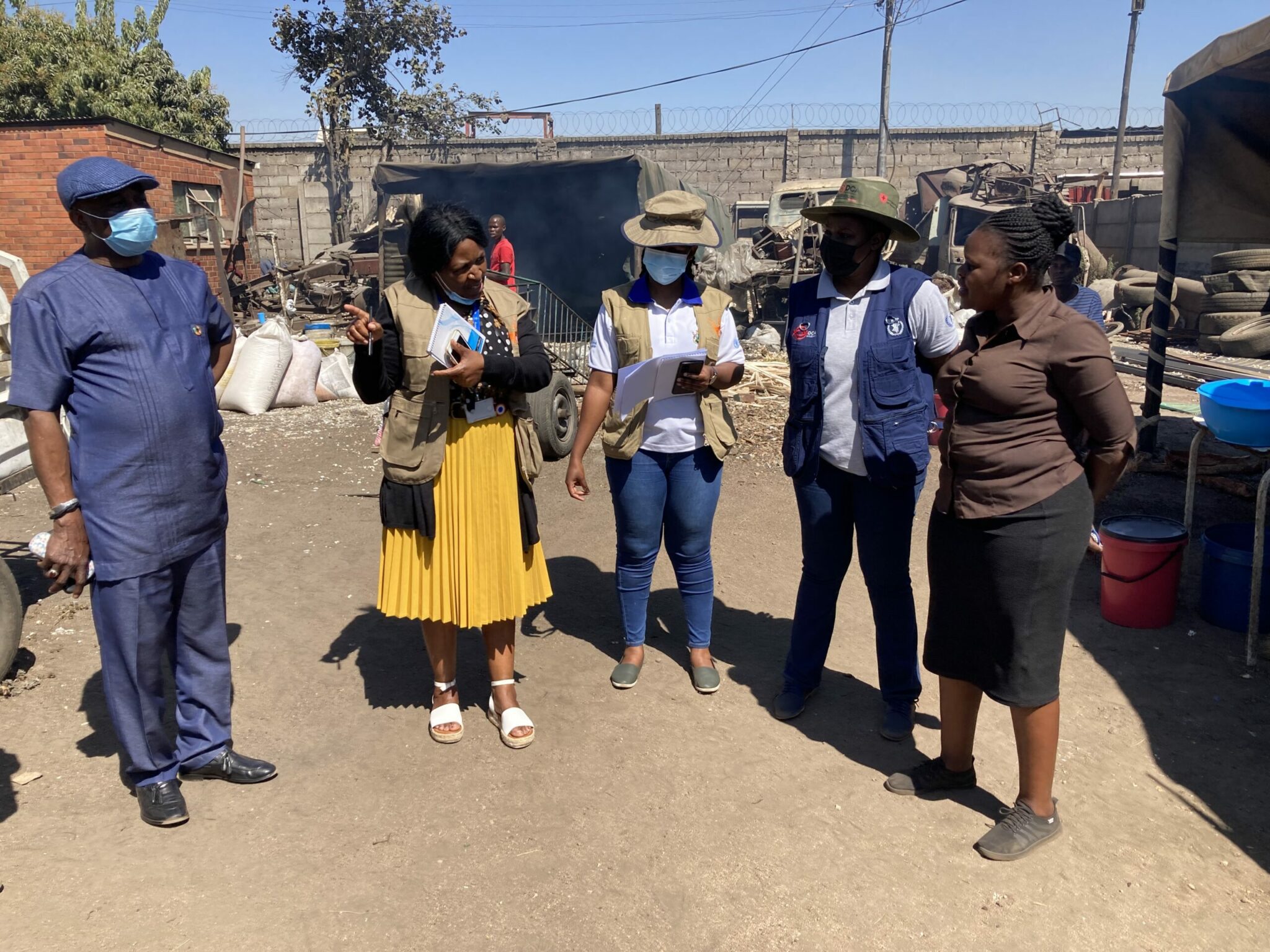United Nations (UN) Resident and Humanitarian Coordinator to Zimbabwe, Edward Kallon, says the development agency is committed to partnering and advocating for more resources to assist vulnerable people in Matabeleland with resilience and self-sustaining programmes.
Kallon said this during his briefing with officials from the Matabeleland North Provincial Affairs and Devolution office at Mhlahlandlela Government Complex in Bulawayo on Monday.
The UN diplomat, coming from a Zimbabwe Economic Development Conference in Victoria Falls passed in Bulawayo to check on UN-supported programmes.
“I am happy to meet with you and exchange pleasantries as I have been in the Matabeleland region for some days and I want to maximise my travels to look at some work the UN is doing as I continue towards Harare. I hope to appreciate the situation from your perspective and see how to strengthen partnerships moving forward,” he said in a meeting with Matabeleland North officials led by Director for Economic Development, Godfrey Mukwakwami who is responsible for coordinating all economic development across government ministries in the province.
Mukwakwami was accompanied by his two deputy directors, Albert Gomwe – Economic Affairs and Investment Deputy Director and Fungai Nkuziwalela -Deputy Director for Coordination.
Accompanying the UN resident coordinator were officials from the World Food Programme (WFP), Plaxedis Moyo and Richard Mwembe from the Food Agricultural Office (FAO) who touched on some projects these organisations had implemented to support vulnerable people, uplift livelihoods in Matabeleland North and Matabeleland South.
Matabeleland North Provincial Livestock Officer, Addmore Chikore under the Ministry of Lands, Agriculture, Water, Climate and Rural Resettlement, told the UN resident coordinator that access to water was still a challenge in the province and more assistance was needed towards that.
“Our major project was funded by the Zimbabwe Resilience Building Fund (ZRBF) which covers five out of seven districts. Under this programme, our focus is on livestock, horticulture, animal generation and improvement, poultry, sheep and goats looking at the potential of the particular districts in terms of livestock development,” he said.
“We had a massive dip tank rehabilitation where new ones were put up. We also have the livestock water development programme to address the challenges of livestock watering, mostly during the dry season challenges. Livestock trekked a distance of more than 10 to 20 kilometres but now we have reduced the distance to almost five kilometres.”
As part of fact-finding, the UN resident coordinator visited beneficiaries who benefited from the ZRBF projects in the city.
Edith Ndebele, a single mother, who makes and sells peanut butter from her small shop in Renkini, said she makes US$600 a month before expenses and from her proceeds, is able to take care of her children including one living with a disability.
The other beneficiary, Mariah Mafadza with support from her husband, Tamuka Gwafhavanhu who has a disability, makes packaged roasted mealie corn and peanuts.
Mafadza has managed to penetrate the commercial market as she supplies some supermarkets and makes US$300 to US$400 of profit monthly.
The UN diplomat also paid a courtesy call on Bulawayo Provincial Affairs and Devolution Minister, Judith Ncube.
UN Communications Specialist Sirak Gebrehiwot told CITE that Kallon and Ncube discussed the challenge of increasing food insecurity caused by the recent dry spell.
“Currently WFP initiatives have been reaching 10 000 people through targeted assistance and the Minister requested if it could be increased to cover more people. The minister also asked for support for small farmers in receiving temperature-regulated trucks, as they have been having challenges in delivering fresh vegetables and fruits from their farms to market,” he said.
Another issue that was discussed was assisting small enterprises working in informal settings in the CBD to have a good working space by converting a number of shell factories into workshops.
“The UN Resident Coordinator assured the Minister that he will look into the issues raised together with the relevant UN Agencies and revert. He assured the Minister of the UN’s commitment and partnership particularly in advocating for more resources to assist vulnerable people in the province with resilience and self-sustaining programmes,” said Gebrehiwot.

